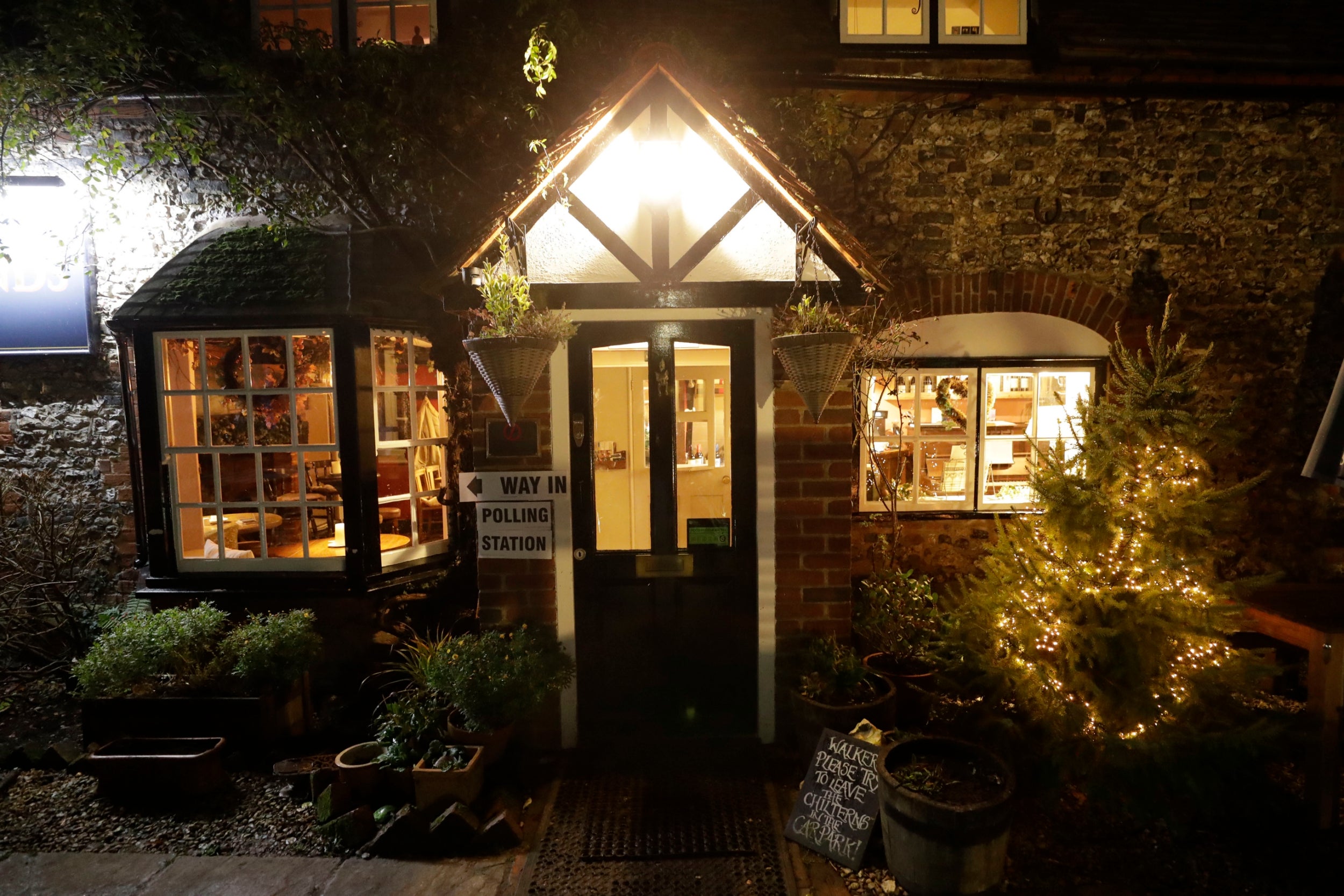Without proportional representation, there’s no future for moderate politics in Brexit Britain
The final insult of first-past-the-post is that we now have a government bent on Brexit put into office against the express wishes of most voters, says Wera Hobhouse


It will be a sombre Christmas for many of us who have spent recent years campaigning to remain in the EU. With a strong majority secured, Boris Johnson has the mandate to force through any kind of Brexit he wishes. His deal, a softer deal – or even no deal.
All these options will leave the UK poorer, less open, and more isolated.
The bitterest pill to swallow is the fact this result is so at odds with how the country actually voted on Thursday. When Britain went to the polls, 52 per cent cast their ballots for parties committed to a People’s Vote or revoking Article 50.
Less than 44 per cent of voters backed Boris Johnson’s very right-leaning Conservative Party, yet they won 56 per cent of Commons seats and with it the power to reshape our society in their own image. Meanwhile the Liberal Democrats won 11.5 per cent of the vote share, but have only 11 MPs.
Arch Brexiteers have long held up the 52 per cent Leave vote in 2016 as the sacred expression of “the will of the people”. I’ve yet to see one demand the same respect for the majority who backed Remain parties last week.
This election is a stark example of the contempt our voting system has for the electorate and, in modern times, for those of us who want to hold on to a moderate, pragmatic politics. First-past-the-post has enabled Brexit every step of the way. Without it, it’s doubtful that the EU referendum would have been called in the first place.
Although it’s hard to imagine today, the UK was not a particularly Eurosceptic nor populist country just a few years ago. Some British people have always harboured doubts about the European project, of course. Many poked fun at its bureaucracy once in a while. And, in a much smaller number, “Europe” has always inspired xenophobic nastiness. But the same can be said of opinion in Germany, Spain or Finland. The average British person probably had no strong opinion on the EU whatsoever in 2010. The battle lines were drawn and fortified after the referendum was announced – not before.
The reason the fated referendum arose from this unremarkable state of affairs is a direct consequence of our first-past-the-post. Rather than being the last bastion of moderation, capable of delivering stable government with policies acceptable to the many – as some have argued – it is the barrier that is holding centrism back.
A brief run-through of recent political history explains why. In the 2010 election, Ukip climbed in the polls. The party had no real chance of winning any MPs, but they had begun to split the Conservative vote enough to put Tory seats at risk. Worse still, a couple of Conservative MPs defected. So ahead of the 2015 election, David Cameron conceded on its key political demand: a referendum on EU membership.
Under a proportional system, there would have been no incentive for him to do so. The European Research Group could have broken off and stood on a Eurosceptic platform, leaving the Conservative Party to advocate a continued relationship with our closest trading partners and allies. This could have happened without splitting the vote and handing power to their main political opponents.
Thanks to first-past-the-post, Cameron called the referendum as an exercise in internal party management. With the arguments in favour of remain, he felt it was a safe gamble.
But first-past-the-post had had another pernicious effect on British society. With its “safe seats” and wasted votes, it had made millions of voters justifiably feeling ignored for decades. In doing so, it sowed the seeds of Brexit.
Theresa May summed this up in a “letter to the nation” in 2018. “In the summer of 2016,” she wrote, “millions came out to have their say. In many cases, for the first time in decades, they trusted that their vote would count.”
This was an astonishing admission for the leader of any democratic country to make, but it was absolutely correct.
Millions of people live in seats that have not changed hands in decades – in some cases, in more than a century. In some of our country’s most deprived areas, voting in general elections seemed to make no difference. Then voters were offered an opportunity to give the Establishment a kicking (albeit an Establishment that somehow didn’t include the Eton-educated gentry and billionaire businessmen).
To be sure, bona-fide Eurosceptics voted Leave in 2016. But they didn’t win it alone. Without the votes of those driven by their sense of intense voicelessness, Leave would have lost.
It doesn’t stop there. The last three years of impasse are not the consequence of no one party governing alone, contrary to what some commentators say. Most democracies use proportional representation, meaning it is rare for any one party to win a majority of seats. Yet few have failed so utterly to build consensus to resolve their problems as we have.
This comes down to the adversarial politics that first-past-the-post dictates. With a proportional system, parties have an electoral incentive to build constructive consensus. With first-past-the-post, it’s the opposite. Compromise is seen as weakness, collaboration as duplicitous. When a tiny swing in the votes can lead to a sudden landslide of seats at the next election, parties are better off monstering one another than trying to reach an agreement.
The voting system is also the reason that the Labour Party, shamefully, felt itself unable to promise a People’s Vote or campaign for Remain until far too late. Despite this being the preference of most of its members and voters, and the party knowing it to be in the clear national interest, Labour feared losing votes in key Leave-voting constituencies. It transpired, last Friday, that their problems were far bigger than that.
In a proportional system, however, it wouldn’t have mattered where Labour got its votes from. It could have campaigned for what it knew to be right and replaced what Leave votes it lost with Remain votes. But under first-past-the-post, the distribution of voters across the country is pivotal – and Labour believed that key Northern seats would be lost if it took a clear position.
The final insult of first-past-the-post is, of course, the one I began with. We now have a government bent on Brexit, put into office against the express wishes of most voters.
The awful irony of the new 52 per cent subjugated by the 44 per cent is enough reason for all who want an open, tolerant Britain at the heart of Europe to campaign for electoral reform.
Make no mistake, first-past-the-post got us into this mess. If we hope to have a future brighter than the past, we need to Make Votes Matter, and replace first-past-the-post with a system of proportional representation that’s fit for the 21st century.
Wera Hobhouse is the Liberal Democrat MP for Bath




Join our commenting forum
Join thought-provoking conversations, follow other Independent readers and see their replies